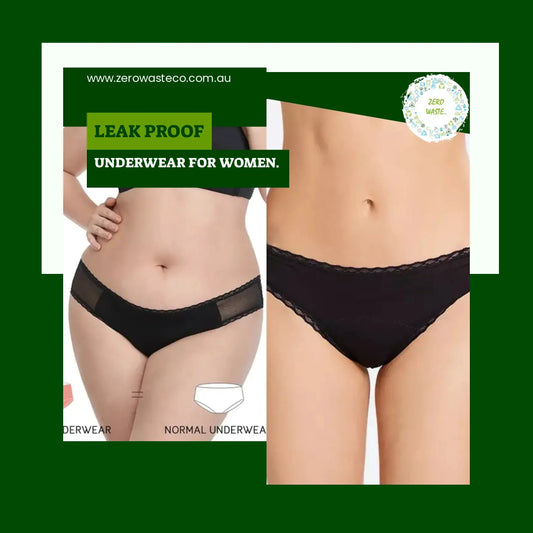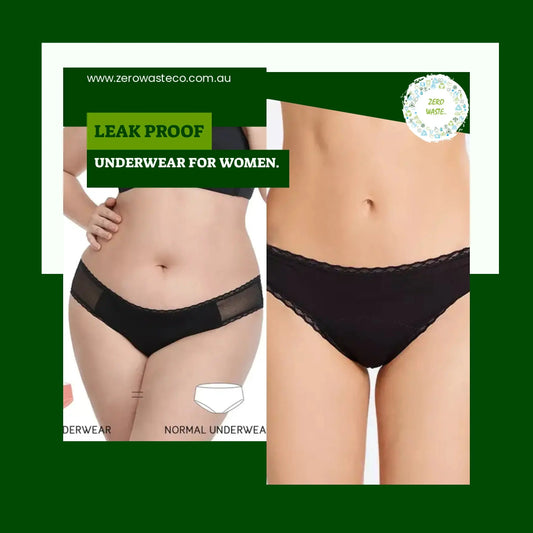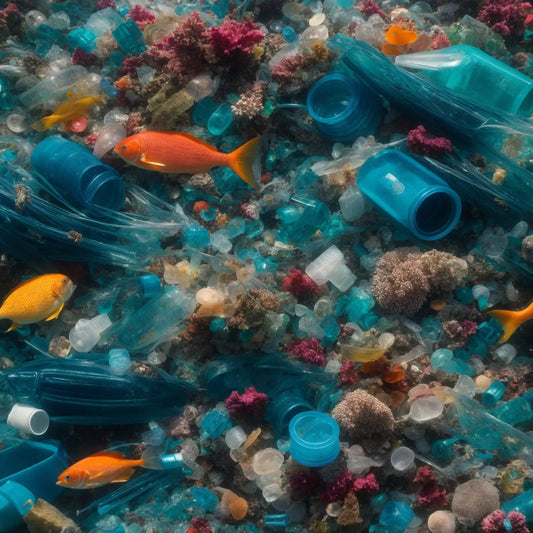5 Eco-Friendly Reasons Why Custom Compostable Packaging is the Future of Sustainable Business

5 Eco-Friendly Reasons Why Custom Compostable Packaging is the Future of Sustainable Business
In today's increasingly eco-conscious world, sustainable business practices have become a top priority for consumers and companies alike. One such practice that is gaining traction is the use of Custom Compostable Packaging. This innovative packaging solution offers a range of benefits that go beyond traditional packaging materials.
Custom Compostable Packaging is not only environmentally friendly but also provides businesses with a unique marketing opportunity. By using compostable packaging, brands can position themselves as leaders in sustainability and showcase their commitment to the planet. This can resonate with consumers who are actively seeking out eco-friendly products and contribute to building a loyal customer base.
Furthermore, Custom Compostable Packaging is designed to break down naturally, leaving behind no harmful residues or waste. This reduces the environmental impact and promotes a circular economy. In addition to being biodegradable, compostable packaging can also be tailored to meet specific brand requirements, offering flexibility and creativity in design.
In this article, we will explore five compelling reasons why Custom Compostable Packaging is the future of sustainable business. From reducing carbon footprints to promoting brand loyalty, discover how this eco-friendly packaging solution can revolutionize the way companies approach sustainability.
The Environmental Impact of Traditional Packaging
Traditional packaging has long been a significant contributor to environmental degradation. Materials such as plastic, polystyrene, and non-biodegradable composites are prevalent in various industries, leading to extensive pollution and waste accumulation. According to the World Economic Forum, more than 300 million tons of plastic are produced globally each year, with a substantial portion ending up in landfills or oceans. This not only threatens marine life but also disrupts ecosystems, as plastics can take hundreds of years to decompose. The impact of traditional packaging is felt in both urban and rural environments, where waste management systems are often overwhelmed by the sheer volume of discarded materials.
Moreover, the production and disposal of conventional packaging contribute significantly to greenhouse gas emissions. The extraction of raw materials, manufacturing processes, and transportation all require energy, much of which is sourced from fossil fuels. As these materials break down, they release methane, a potent greenhouse gas that exacerbates climate change. The linear economy model, which prioritizes production and consumption without consideration for end-of-life, has resulted in a throwaway culture that is unsustainable in the long run. As awareness of climate change and environmental issues grows, consumers are increasingly demanding sustainable alternatives to traditional packaging.
Addressing the environmental consequences of traditional packaging is essential for any business aiming to operate sustainably. By shifting away from single-use plastics and non-biodegradable materials, companies can significantly reduce their carbon footprints and help alleviate the strain on waste management systems. This transition is not merely a trend; it is a necessary evolution in response to the pressing challenges posed by climate change and environmental degradation. The move towards Custom Compostable Packaging represents a viable solution to mitigate these negative impacts while aligning with consumer values and preferences.
Benefits of Custom Compostable Packaging
Custom Compostable Packaging offers a myriad of advantages that set it apart from traditional packaging solutions. One of the most compelling benefits is its environmental friendliness. Unlike conventional packaging, which can take centuries to decompose, compostable packaging is designed to break down into natural elements in a composting environment within a short timeframe. This means that businesses utilizing compostable packaging can contribute to reducing landfill waste and promoting a healthier planet. The end-of-life process for compostable materials is not only environmentally beneficial but also enriches soil health, thus aiding in the growth of new plants and ecosystems.
Another significant benefit of Custom Compostable Packaging is its ability to enhance brand perception. In an era where consumers are increasingly eco-conscious, packaging made from sustainable materials can set a business apart from its competitors. Brands that adopt compostable packaging demonstrate their commitment to environmental stewardship, which can resonate deeply with consumers who prioritize sustainability in their purchasing decisions. This alignment with consumer values can foster brand loyalty, as customers are more likely to support companies that reflect their beliefs and contribute positively to the environment.
Additionally, Custom Compostable Packaging allows for innovative design possibilities. Businesses can create unique and eye-catching packaging solutions that not only serve a functional purpose but also tell a story about their commitment to sustainability. With advancements in technology, brands can now customize the look and feel of their packaging while ensuring that it meets compostability standards. This creative flexibility not only enhances the overall customer experience but also provides an opportunity for brands to communicate their values and mission effectively, making their product offerings even more appealing to consumers.
Custom Compostable Packaging Options
When considering Custom Compostable Packaging, businesses have a variety of options to choose from, each catering to different needs and preferences. One popular choice is plant-based plastics, which are derived from renewable resources such as corn starch or sugarcane. These materials can be engineered to mimic traditional plastic in terms of functionality while offering the benefit of being compostable. Plant-based bottles, containers, and wraps can effectively serve the same purpose as their fossil fuel-based counterparts but with a significantly reduced environmental footprint.
Another option is paper-based packaging, which is widely used for items such as boxes, bags, and wraps. Custom compostable paper packaging can be treated with bio-based coatings that enhance its durability while ensuring it remains compostable. This type of packaging is particularly appealing for businesses in the food and retail sectors, as it can be designed to meet both aesthetic and functional requirements. The versatility of paper allows brands to create attractive packaging that aligns with their branding while promoting sustainability.
Lastly, businesses can explore the use of biodegradable films and compostable laminates for their packaging needs. These materials are ideal for products that require a barrier to moisture or oxygen while still being environmentally friendly. Custom compostable films can be printed with branding elements and are suitable for a variety of applications, from snack packaging to food delivery solutions. As technology continues to advance, the range of compostable packaging options will only expand, providing businesses with even more opportunities to embrace sustainable practices without sacrificing quality or performance.
Case Studies of Businesses Using Custom Compostable Packaging
Numerous businesses have successfully integrated Custom Compostable Packaging into their operations, showcasing the practical benefits and positive impact of this sustainable choice. One notable example is the food industry giant, Unilever, which has committed to making all of its plastic packaging recyclable, reusable, or compostable by 2025. In recent years, Unilever has begun to incorporate compostable packaging for some of its products, such as its ice cream brand, Ben & Jerry's. By utilizing plant-based materials for their packaging, Unilever not only reduces its environmental impact but also enhances its brand image as a leader in sustainability.
Another inspiring case is that of the coffee chain, Starbucks. In its efforts to reduce waste, Starbucks has been experimenting with compostable cups and straws made from renewable resources. The company has partnered with various suppliers to develop packaging that meets its sustainability goals while still maintaining the quality and functionality expected by customers. By taking steps toward using compostable materials, Starbucks not only addresses the environmental concerns associated with traditional coffee cups but also positions itself as a forward-thinking brand in an industry that is often criticized for its ecological footprint.
A smaller but equally impactful example is the eco-friendly brand, Package Free Shop. This retail company specializes in sustainable and zero-waste products, and it has made a significant commitment to using compostable packaging for shipping its goods. By opting for biodegradable mailers and compostable fillers, Package Free Shop not only minimizes its environmental impact but also reinforces its mission of promoting sustainability. This deliberate choice resonates with customers who are seeking eco-conscious alternatives, thereby establishing a loyal customer base that values the brand's commitment to the planet.
Transitioning to Custom Compostable Packaging requires a strategic approach to ensure a smooth and effective implementation. The first step is to conduct a thorough assessment of the current packaging materials and practices in use. Businesses should evaluate their supply chain, identify areas where compostable options can be integrated, and determine the specific needs of their products and customers. Engaging with packaging suppliers who specialize in compostable materials can provide valuable insights into available options and help identify the right solutions for the business.
Once a plan is in place, it’s essential to educate all stakeholders about the benefits and importance of compostable packaging. This includes training employees on how to handle and manage the new materials, as well as informing customers about the transition. Clear communication is vital, as it helps to set expectations and reinforces the brand’s commitment to sustainability. Marketing efforts should highlight the shift to compostable packaging, showcasing the brand’s dedication to reducing environmental impact and appealing to eco-conscious consumers.
Finally, businesses should monitor and evaluate the effectiveness of their new packaging solutions over time. Gathering feedback from customers, analyzing waste reduction, and assessing the overall impact on brand perception are crucial for understanding the success of the transition. Continuous improvement can be achieved by staying updated on advancements in compostable packaging technologies and adapting practices as needed. By committing to this ongoing process, companies can solidify their position as leaders in sustainability and contribute positively to the environment.
While the benefits of Custom Compostable Packaging are numerous, there are also challenges and considerations that businesses must navigate. One significant challenge is the perception and understanding of compostable materials among consumers. Many people confuse compostable packaging with recyclable materials, leading to improper disposal practices. Educating customers about the proper disposal methods and the benefits of compostable packaging is crucial to ensure that the materials are composted correctly and do not end up in landfills.
Additionally, the performance of compostable packaging can vary based on environmental conditions, which may pose challenges for businesses. Unlike traditional packaging, which has established standards for durability and shelf life, compostable materials may require specific conditions to maintain their integrity. For example, exposure to heat or moisture can impact the performance of compostable films or containers. Businesses must work closely with suppliers to ensure that their packaging solutions are suitable for their products and can withstand the conditions they will face during storage and transportation.
Moreover, the initial costs of Custom Compostable Packaging can be higher than traditional packaging options. While prices have been decreasing as demand increases, businesses may still face upfront costs associated with sourcing new materials, redesigning packaging, and educating staff and customers. To mitigate these costs, companies should consider the long-term benefits of compostable packaging, such as reduced waste disposal fees, potential tax incentives, and enhanced brand loyalty. By viewing the transition as an investment in sustainability, businesses can better justify the initial financial outlay.
The Future of Sustainable Business and the Role of Custom Compostable Packaging
The future of sustainable business is inextricably linked to the adoption of eco-friendly practices, and Custom Compostable Packaging will play a pivotal role in shaping this landscape. As consumer awareness of environmental issues continues to grow, businesses that prioritize sustainability are likely to thrive in a competitive marketplace. Brands that embrace compostable packaging not only demonstrate their commitment to reducing waste but also position themselves as innovators in an evolving industry. This proactive approach can attract a loyal customer base that values sustainability, ultimately driving long-term success.
Moreover, as regulatory pressures surrounding plastic waste and environmental protection increase, businesses will need to adapt to remain compliant. Many governments are implementing stricter regulations on single-use plastics and incentivizing the use of sustainable alternatives. Custom Compostable Packaging aligns with these regulatory trends, allowing businesses to stay ahead of legislation while contributing positively to the environment. Companies that proactively adopt sustainable practices will be better positioned to navigate these changes and enhance their reputations as environmentally responsible entities.
Additionally, advancements in technology and innovation will continue to drive the development of Custom Compostable Packaging solutions. As researchers explore new materials and methods for creating compostable options, businesses will have access to an expanding array of choices that meet their packaging needs. This ongoing evolution will enable brands to remain competitive while fulfilling their sustainability goals. By investing in research and development, companies can play an active role in shaping the future of sustainable packaging and contribute to a more circular economy.
Numerous resources and organizations are dedicated to supporting businesses in their transition to Custom Compostable Packaging. One such organization is the Biodegradable Products Institute (BPI), which offers certification for compostable products and provides guidance on best practices for compostable packaging. By aligning with BPI-certified products, businesses can ensure that their packaging meets industry standards and can effectively break down in composting facilities.
Another valuable resource is the Sustainable Packaging Coalition (SPC), which focuses on encouraging sustainable packaging practices across various industries. The SPC offers educational materials, research, and networking opportunities to help businesses understand the importance of sustainable packaging and connect with like-minded companies. Through collaborative efforts, businesses can share insights and strategies to enhance their sustainability initiatives.
Additionally, local and regional programs often provide support for businesses seeking to implement compostable packaging solutions. Many municipalities have established composting programs and offer resources for businesses to participate in sustainable practices. Engaging with these local initiatives can provide valuable insights and support as businesses navigate their transition to compostable packaging. By leveraging these resources and organizations, companies can enhance their sustainability efforts and contribute to a greener future.
Conclusion: Embracing the Future of Sustainable Business with Custom Compostable Packaging
As the world increasingly prioritizes sustainability, Custom Compostable Packaging emerges as a crucial component of responsible business practices. By reducing environmental impact, enhancing brand perception, and aligning with consumer values, businesses can position themselves as leaders in the push for a more sustainable future. The transition to compostable packaging not only benefits the planet but also fosters a culture of innovation and responsibility within organizations.
Furthermore, as technology continues to advance and awareness of environmental issues grows, the demand for Custom Compostable Packaging will only increase. Businesses that recognize this trend and take proactive steps to integrate sustainable practices into their operations will be well-positioned for long-term success. By embracing compostable packaging, companies can improve their environmental footprint, attract eco-conscious consumers, and contribute to a circular economy.
Ultimately, the future of sustainable business lies in the choices we make today. By adopting Custom Compostable Packaging, businesses can lead the way toward a greener, more sustainable world. This commitment not only reflects a dedication to environmental stewardship but also resonates with consumers who are eager to support brands that prioritize the planet. As we move forward, let us embrace the potential of Custom Compostable Packaging and work together toward a more sustainable future.
No comments










0 comments